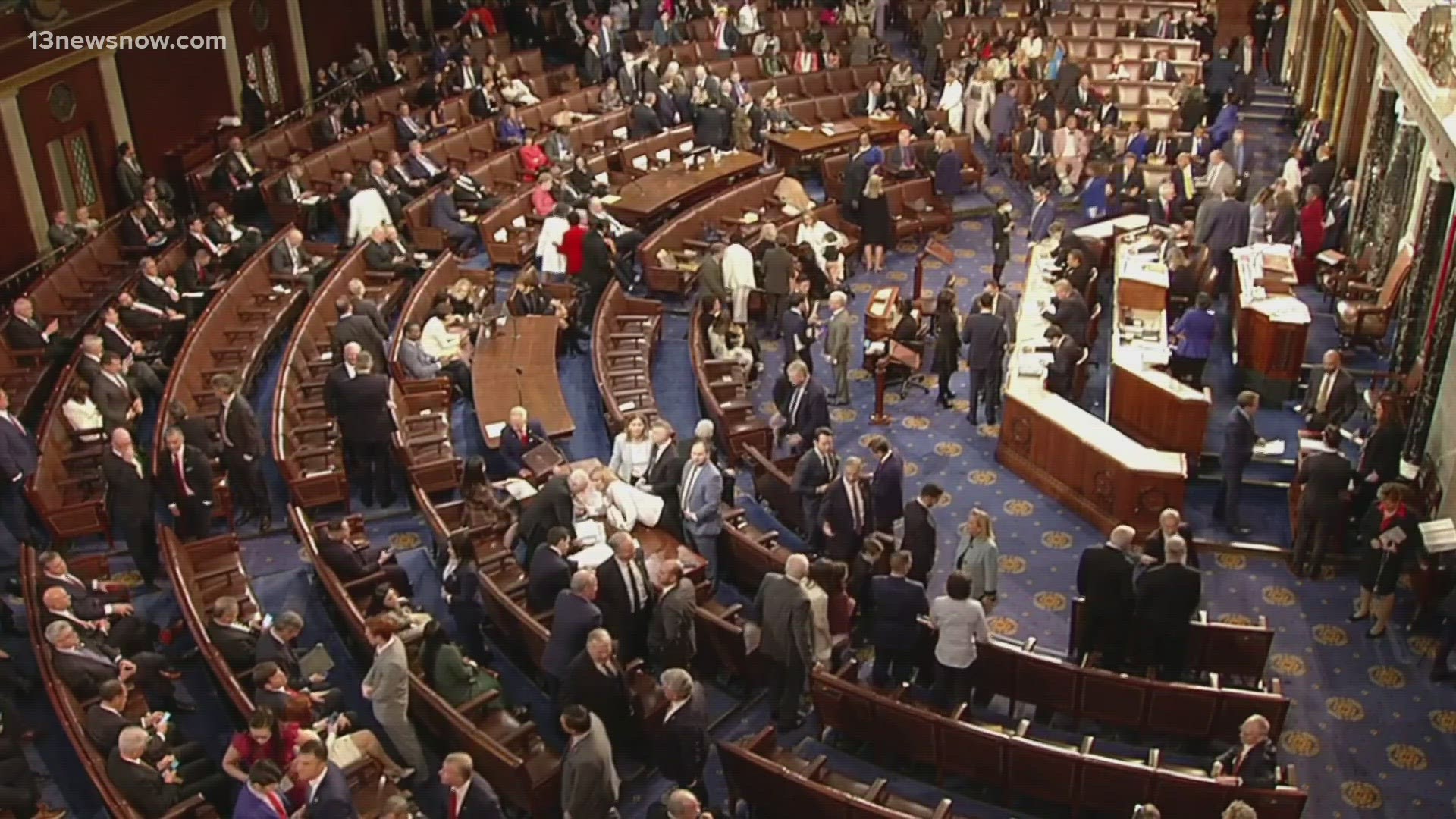WASHINGTON — The Senate Foreign Relations Committee voted Wednesday to repeal the legislative measures which authorized the 1991 Gulf War, and the 2002 Iraq War.
The vote was 13-8, sending the measure on to the floor of the full Senate.
This March 19 will mark the 20th anniversary of the "Shock and Awe Campaign," the beginning of the US-led aerial bombardment of Baghdad that eventually became Operation Iraqi Freedom.
And even though the war has been over since 2010, the legislative justification that allowed it to proceed in the first place remains on the books to this day.
So does the original Authorization for the Use of Military Force for the first Iraq war -- Operation Desert Storm -- back in 1991.
Sen. Tim Kaine (D-Virginia) has pushed for a repeal of the AUMFs since 2019.
This year, he has amassed a group of 22 co-sponsors in the Senate and House -- 11 Democrats and 11 Republicans -- to formally end the Gulf and Iraq wars, and reassert Congress' Constitutional role in deciding whether and when to send American service members into harm's way.
After Wednesday's vote, he said in a statement:
“Although the 1991 Gulf and 2002 Iraq wars are over and Iraq is no longer an enemy, the Authorizations for Use of Military Force remain on the books. Congress has a constitutional and moral responsibility to repeal them so that future presidents can’t use these authorizations as a blank check to send servicemembers into harm’s way. I’m glad we’re one step closer today to repealing these outdated and unnecessary AUMFs. I welcomed Majority Leader Schumer’s commitment to bring our bill to the Senate floor in coming weeks, and I urge my colleagues to pass our bipartisan bill so we can formally end the Gulf and Iraq wars.”
AUMFs give presidents broad powers to conduct military operations without Congress' Constitutional right to approval.
Past attempts to repeal the authorizations failed amid criticism that eliminating them would endanger U.S. national security and U.S. forces overseas.

